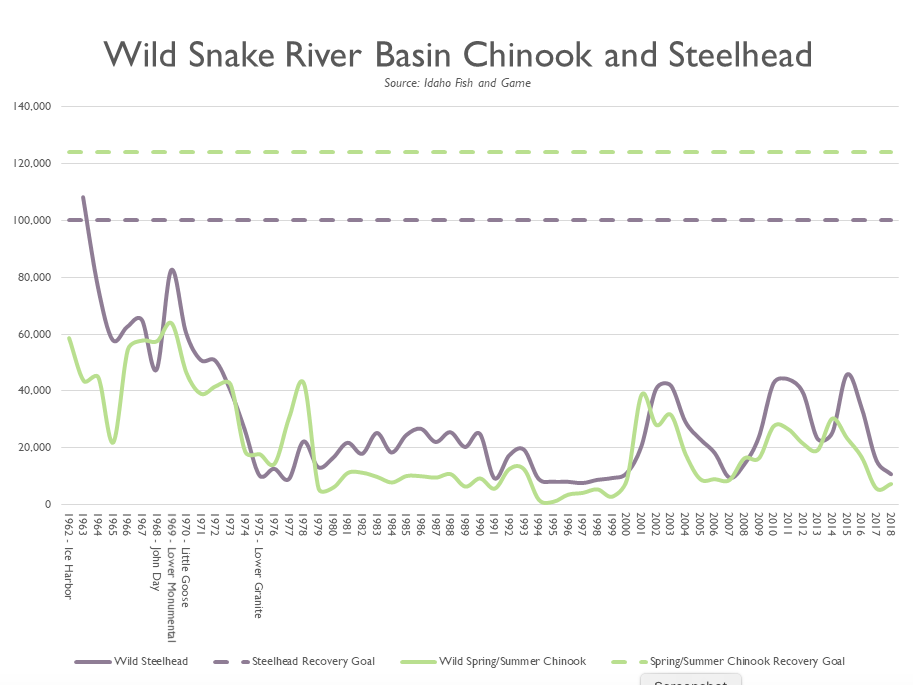forum
library
tutorial
contact

Snake River Dams' Cost to Salmon
Not Worth Power Produced
by Steven Hawley
Everett Herald, September 8, 2020
|
the film forum library tutorial contact |

|
Snake River Dams' Cost to Salmon
by Steven Hawley
|
The plain truth is that there isn't enough water in the Snake River after mid-July
to do much for the energy picture in the Pacific Northwest, much less in California.
 Kurt Miller's Aug. 30 guest commentary ("California blackouts a warning to the Northwest," The Herald, Aug. 30) was riddled with factual errors and omissions.
Kurt Miller's Aug. 30 guest commentary ("California blackouts a warning to the Northwest," The Herald, Aug. 30) was riddled with factual errors and omissions.
It can be said with certainty that dams on the Snake River didn't offer even a smidgen of help in averting the crisis.
Mr. Miller's claim, "that the lower Snake River dams produced close to 1,000 MW per hour of power over the peak hours of California's recent shortage" is demonstrably false.
A graph of daily power production from the operators of those dams, the U.S. Army Corps of Engineers, shows peak power production of the four Snake River dams during the days and hours of California's recent rolling blackouts at less than 500 megawatts. If electricity produced on the Snake River was a help to Californians, it was providing less than 2 percent of its demand, perhaps making the blackouts very slightly less severe.
The plain truth is that there isn't enough water in the Snake River after mid-July to do much for the energy picture in the Pacific Northwest, much less in California.
Mr. Miller overlooked the dirty work these dams actually do: a fabulous job of speeding salmon on their way to extinction, by virtue of creating a shallow, sun-baked 140 mile-long slough of slackwater that, even in an average summer, violates federal temperature standards.
Even if you don't care a whit for salmon, you should take notice that the federal hydrosystem Mr. Miller champions has cost Pacific Northwest ratepayers $17 billion in fish recovery efforts, and that the Bonneville Power Administration, which sells power from these dams, is, by their own admission $15 billion in debt, and over the past decade, has burned through almost a billion dollars in cash reserves, a fiscal hole caused in part by selling "surplus" electricity to California at a significant loss. Much of that surplus was generated by water that could and should have benefited fish.
That the effort to save salmon has thus far been a very expensive failure is due in no small part to the kind of misinformation furnished by Mr. Miller and Northwest RiverPartners.
learn more on topics covered in the film
see the video
read the script
learn the songs
discussion forum
